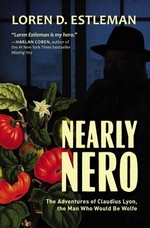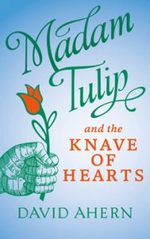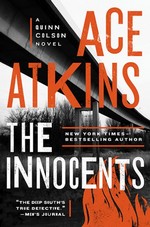by Ace Atkins
Series: Quinn Colson, #6Hardcover, 367 pg.
G.P. Putnam’s Sons, 2016
Read: July 25 – 26, 2016

“I never met this girl or knew her family,” [Ophelia] said. “But, holy shit, this is a horror among horrors. I try to not focus on Old Testament stuff. But . . . I hope there’s some revenge out there somewhere. I don’t know if there’s another way to make it right.”
“You can’t make shit like this right,” Quinn said.
But before we get to the horror, we get one of the funniest openings that Tibbehah County has given us — a meth-head steals a shotgun and a four-wheeler, and is apprehended by the acting Sheriff, Lillie Virgil(!!), in a very effective, but not that orthodox a manner. And then, of course, after Atkins gets you chuckling he introduces you to the murder victim. It’s not unheard of in a crime novel, but we spent a decent amount of time getting to know her before she died in one the worst ways I remember reading. Reading as many Detective/Crime/etc novels as I do, I’ve read some evil ways to kill some one, and some really sick things — see Val McDermid, Thomas Harris, Stieg Larsson –but this ranks up there with the worst. And it felt real, like something that could happen down the road, not the victim of diseased mind like the psychos those listed above write about. In fact, Ophelia Bundren, the coroner (who, incidentally has some of the best lines in the book — and not just what was quoted above) spoke for just about everyone in the county there (including some of the least-upstanding members of the community who will echo her). It’s a good thing that Tibbehah County has their most capable law enforcement officer in forever at the helm (and she hires a certain former Sheriff as temporary help).
It took no time at all to know how did it (or at least who was largely responsible) — actually, pretty sure I’d identified the perpetrator and the motive before the killing — but that didn’t stop this from being one of Atkins’ most compelling crime stories.
Along with all that, there are plenty of other goings on . . .
Lillie Virgil is acting as Sheriff, and isn’t dealing well with the politics. She deals well with the policing, but that’s it — between being a woman, having almost no people skills and not backing down when people want her to, things aren’t going too well for her. Which is a shame, still, it’s nice to see her in the spotlight.
Johnny Stagg’s in federal prison, and learning just who his friends are. Not surprisingly, there are fewer than he’s used to. Someone else has taken over the Booby Trap, given it a better name (finally!) and a make over. All in all, it’s a better class of strip club and the owner appears slightly less despicable.
Jason Colson has a new pipe dream and he looks to be sucking Quinn into helping out — honestly, my patience with this character is pretty low — I think the only person in the world who likes him less is Quinn’s mother, Jason’s ex. He’s not as destructive a force as the storm that just about wiped out the town a couple of years ago, but it’s a close race.
And things with Anna Lee are in a pivotal spot. That’s enough about that.
Quinn’s still in that same period of decision after losing the election a year or so ago — the man needs a little direction in his life and hopefully he gets it soon.
The power of small-town High School football, convenient racism, small town crime, Real World Evil, friendship, and personal history — as usual, Atkins brings it all and delivers it with skill, charm and aplomb. I thoroughly enjoyed this trip to Mississippi and look forward to my next trip there.
—–






 On Oct 23 in Chillicothe, Ohio, Archie Goodwin entered this world–no doubt with a smile for the pretty nurses–and American detective literature was never the same.
On Oct 23 in Chillicothe, Ohio, Archie Goodwin entered this world–no doubt with a smile for the pretty nurses–and American detective literature was never the same.



